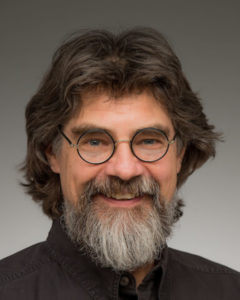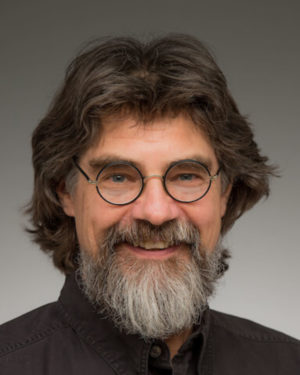Podcast: Play in new window | Download (Duration: 34:48 — 24.0MB) | Embed
Subscribe: Apple Podcasts | Spotify | Amazon Music | Android | Pandora | iHeartRadio | JioSaavn | Podchaser | Gaana | Podcast Index | Email | TuneIn | Deezer | Anghami | RSS | More

Episode 1 – The River of the Liturgy – Pathway to Sacred Mysteries with Dr. David Fagerberg Ph.D.
Dr. David Fagerberg and host Kris McGregor discuss the interconnectedness of liturgy and mysticism in Christian life, exploring how these elements, often perceived as separate, are integral to fulfilling one’s baptismal calling.
Dr. Fagerberg explains that baptism is not a one-time event but the beginning of a lifelong spiritual journey involving liturgical responsibilities and mystical enjoyment of God. He emphasizes that liturgy should not be seen merely as ritualistic or formal actions but as a profound expression of one’s faith that should influence daily life.
The concept of “liturgical mysticism,” where personal mystical experiences and the public sacramental life, are intertwined. Dr. Fagerberg uses metaphors such as a river flowing from the throne of God to describe how liturgy impacts both the church and the individual believer. He tells listeners of the importance of recognizing and embracing mysticism in everyday life, suggesting that everyone, not just extraordinary mystics, is called to this deeper spiritual engagement.
Liturgy is the work of God (opus Dei) enacted through human activity, and it aims to glorify God and sanctify humanity. He also touches on the holistic nature of liturgy, which should permeate all aspects of life, and the ultimate goal of uniting with God.
Here are some of the topics explored in this episode:
- What is “liturgy”?
- What is “mysticism”?
- The significance of baptism.
- Understanding “teleology”. What’s the telos of a human being?
- Understanding the connection between the interior heart personal liturgy and the exterior sacramental public liturgy
From the discussion with Dr. Fagerberg:
“… everything was directed towards a certain end, there was a telos, teleology. The telos of our watches is to tell time, the telos of a knife is to cut. What’s the telos of a human being? Deification, adoption, being taken up into the circulation of the life of the Trinity. How do you make that journey? That’s liturgical. That’s the ascetical struggle. That’s the discipline of spiritual warfare. That’s mysticism. That’s the allure theological in the way the Eastern fathers defined telógia, a union with God. The objective here is union with God. Well, if that’s the telos, the teleological end is our union with God, then everything, not just Sunday morning for 55 minutes, everything in our life and all aspects of our life, liturgical, theological, ascetical, and mystical.”
More taken from the discussion:
“There’s a book on liturgy by an Eastern Rite. Catholic named John Carbone, who takes the imagery from the book of revelation of liturgy as a river flowing from the throne of God. Oh, it’s not like, something that I’m trying to produce. Liturgy isn’t my production. Liturgy is the river of life flowing from the throne of God. And I imagined it landing first in the church in order to make this Mystical Body of Christ. It lands first in the baptismal font, but the font fills up and the river of liturgy overflows the lip of the baptismal font and it hits us.
And now it becomes our personal liturgy. Besides the public Church liturgy, there’s an interior heart personal liturgy. And I thought that’s liturgical mysticism. That’s liturgy happening at an interior mystical spiritual level. That’s an attempt to connect liturgical mysticism with the work of the Church. I surely am not suggesting that there are two tracks and some people like Church and priests and a lot of incense, and other people like to go in their room and pray by themselves. No, no, no. The interior heart personal liturgy must be connected to the exterior sacramental public liturgy.”
Discerning Hearts Reflection Questions
- Understanding Liturgy and Mysticism How can we deepen our understanding of liturgy and mysticism to fulfill our baptismal calling?
- The Importance of Baptism What aspects of our baptismal identity are we called to live out daily?
- Integrating Liturgy into Daily Life How can we make our daily lives reflect the liturgical practices and spiritual disciplines we observe in church?
- Personal and Public Liturgy In what ways can we connect our personal spiritual practices with the public liturgy of the church?
- Role of Asceticism How can we incorporate ascetical practices into our lives to support our spiritual growth and mystical experiences?
- Embracing Mystical Experiences What steps can we take to become more aware of and open to mystical encounters with God in our daily lives?
- Liturgical Foundation and Mysticism How can understanding the liturgical foundation of the church help us embrace our role as mystics?
- Liturgical Actions as Identity Formation In what ways do our liturgical actions shape our identity as Christians and how can we be more intentional about this process?
- Understanding God’s Work in Liturgy How can we better recognize and participate in the work of God through our liturgical practices?
- Holistic Christian Life How can we integrate the various aspects of our Christian life—liturgical, theological, ascetical, and mystical—toward the ultimate goal of union with God?
For more podcast episodes of this series visit the Pathways to Sacred Mysteries w/Dr. David Fagerberg page
David W. Fagerberg is Professor in the Department of Theology at the University of Notre Dame. He holds masters degrees from Luther Northwestern Seminary, St. John’s University (Collegeville), Yale Divinity School, and Yale University. His Ph.D. is from Yale University in liturgical theology.
Fagerberg’s work has explored how the Church’s lex credendi (law of belief) is founded upon the Church’s lex orandi (law of prayer). This was expressed in Theologia Prima (Hillenbrand Books, 2003). He has integrated into this the Eastern Orthodox understanding of asceticism by considering its role in preparing the liturgical person. This was treated in On Liturgical Asceticism (Catholic University Press, 2013). And these two themes come together in Consecrating the World: On Mundane Liturgical Theology (Angelico Press, 2016).
He also has an avocation in G. K. Chesterton, having published Chesterton is Everywhere (Emmaus Press, 2013) and The Size of Chesterton’s Catholicism (University of Notre Dame, 1998).






